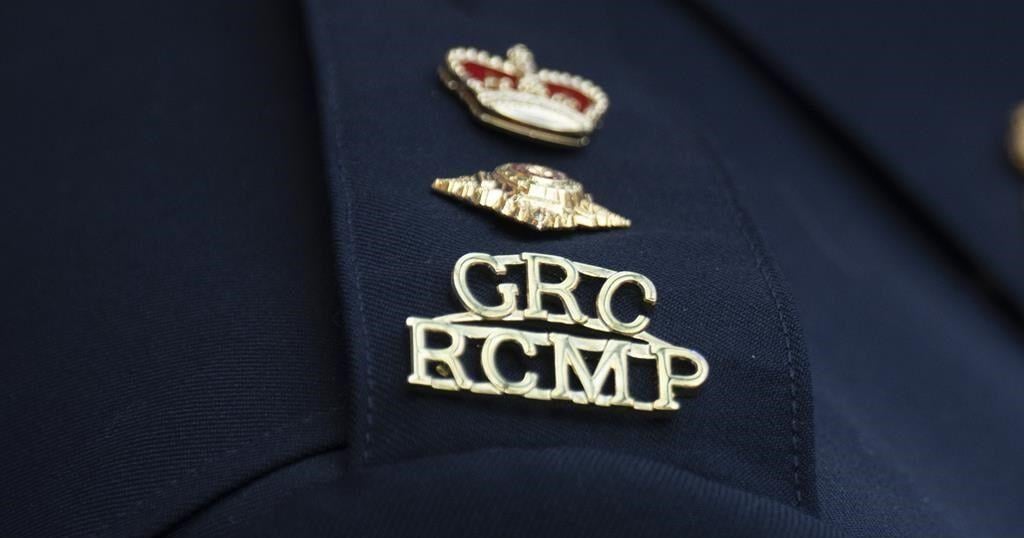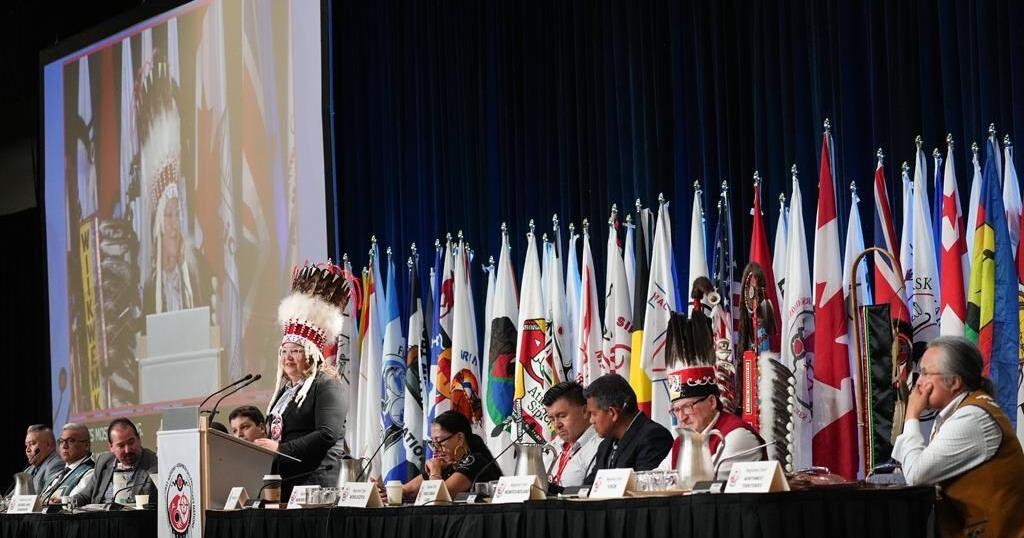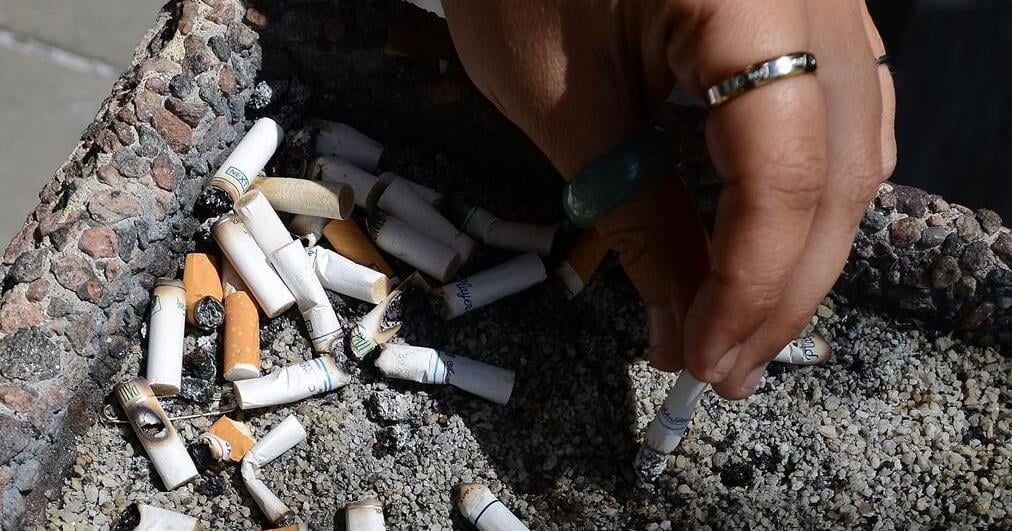OTTAWA – First Nations chiefs have voted to reject a landmark $47.8-billion child welfare reform deal, reached in July with the Canadian government.
At a special chiefs assembly in Calgary hosted by the Assembly of First Nations, 267 out of 414 chiefs voted against a resolution in support of the deal after a lengthy debate that at points was emotionally charged as they argued either for or against it.
Resolutions remain on the agenda for the final day of the gathering on Friday, including for chiefs to be given another 90 days to review the deal, bringing another vote in January.
“Our leaders have rejected this draft agreement because they know what’s at stake: our children,” said Mary Teegee, the chair of the Our Children Our Way Society, in a statement.
“This was not a good agreement: we have to do better for our children.”
The deal was struck between Canada, the Chiefs of Ontario, Nishnawbe Aski Nation and the Assembly of First Nations after a nearly two-decade legal fight over the federal government’s underfunding of on-reserve child welfare services.
The Canadian Human Rights Tribunal said that was discriminatory.
It tasked Canada with coming to an agreement with First Nations to reform the system, and also with compensating children who were torn from their families and put in foster care.
Chiefs and service providers critiqued the deal for months, saying it didn’t go far enough to ensure the discrimination stops, and have blasted the federal government for what they say is its failure to consult with First Nations in negotiations.
In a statement Thursday night, Nishnawbe Aski Nation expressed its dissatisfaction with the deal not being ratified by chiefs in assembly.
“Leaders from across Ontario voiced their support and did their best for our children and families today, and we want to highlight the shameful way that the defeat of today’s resolution was celebrated by those in the room – many being those in the child welfare agencies who will continue to benefit from the status quo,” the statement says.
“Our leadership has given us a strong mandate to reject the status quo and assert their authority to control the care and well-being of their children … We will regroup, strategize, and begin discussions with the appropriate federal and provincial officials on a new path forward.”
Cindy Blackstock, executive director of the First Nations Child and Family Caring Society, which helped bring forward the initial human rights complaint, said before the vote that chiefs can do better than the deal that’s been reached, and that she cannot endorse it.
“I want to see a day when we get the discrimination stopped and it doesn’t happen again — and we can get there,” Blackstock said.
“Not in a long time; we got all the tools to be able to get there.”
The national chief of the Assembly of First Nations stressed on Wednesday and Thursday that wasn’t the case, saying a change in government could throw the reforms into question, while Blackstock highlighted the reforms are required by a legal order, not political will.
“I’ve lived through the Harper years, and the Canadian Human Rights Tribunal survived through the Harper years,” she said, referencing former Conservative prime minister Stephen Harper.
“Everything is on the table.”
In another address, Blackstock blasted the federal government for what she called a breach in its duty to consult with First Nations during negotiations, and after the deal was made public.
“Where is Canada?” she asked.
In a statement Wednesday, a spokesperson for the minister of Indigenous services said the department won’t tell First Nations organizations how to engage their own members.
The Assembly of First Nations is not a rights-holding organization, but rather a forum where 630 rights-holding chiefs across Canada can advocate for their concerns.
The federal government has a duty to consult with First Nations when its actions could affect their rights.
Carolyn Buffalo, a mother from Montana First Nation in Maskwacis, Alta., was one representative plaintiff in the class action for Jordan’s Principle families.
Jordan’s Principle is a legal rule named after Jordan River Anderson, a First Nations child born in 1999 with multiple health issues that kept him in hospital from birth. He didn’t leave the hospital until he died at the age of five, and governments couldn’t agree on who should pay for his home-based care.
Buffalo’s son, Noah, has cerebral palsy and requires continuous care. But Ottawa has been making that care difficult for him to access on reserve.
Speaking through tears at the assembly earlier Thursday, Buffalo said she thought chiefs would vote down the deal she and others have worked on for years. She said kids would be left without protection if the deal was rejected.
“I didn’t even want to come to this assembly because I knew that politically it was going to be tough,” she said.
“Do I trust the AFN? No. Do I trust the Liberal government? No, but I am a supporter of this legal process. That’s why we agreed to join and be part of it. If I thought for one second that this was going to be harmful to our people, I wouldn’t be part of this … go ahead, scuttle the agreement. But if the deal is lost, just remember what I said.”
Another representative plaintiff, Ashley Bach, was removed from her community as a child. She urged chiefs to remember that many children in care are watching the assembly, even though the topic is traumatizing for them and some conversations have been hostile.
“This is a once-in-a-childhood agreement, because if we take too long we’re going to lose another generation,” she said.
“If we wait years and years for a perfect agreement, they won’t be kids anymore. They’ll be like me.”
This report by The Canadian Press was first published Oct. 17, 2024.

























